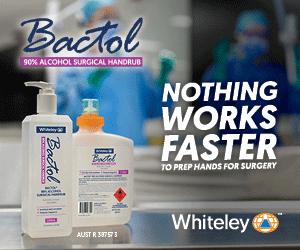Nurses across sectors are bracing themselves for a “perfect storm” of Omicron cases hitting New Zealand amid critical nursing shortages and staff burnout.
Omicron cases are projected to soar in coming months, which would hit an ailing health system hard, according to NZNO acting professional and nursing services manager Kate Weston.

Already under-staffed, absenteeism during peak Omicron was predicted to be 25 to 40 per cent, she said.
“It’s that double whammy of our workforce is going to be sick and stretched as we have higher demand, so that’s what’s really going to cause problems across the entire health sector,” Weston said. “It’s the perfect storm – we’ve been warning people in the ministry about the nursing pipeline for decades.”
Redeploying or moving nurses and workers around district health boards (DHBs) and regions, to manage the high caseloads, was “at the heart” of discussions between health unions and Ministry of Health, she said. However, this would be voluntary and already likely to be in most DHBs’ management policies.
The nursing workforce was particularly vulnerable to Omicron, with many over 60, she said. “We really do need to protect the wellbeing of the workforce – a workforce already under extreme stress and pressure. How are we going to protect them?”
‘It’s the perfect storm – we’ve been warning people in the ministry about the nursing pipeline for decades.’
Deferring non-urgent care was one option – although that led to problems further down the track, as patients worsened. “So it’s double-edged really, every attempt to decompress has a knock-on effect of when they do finally get to us that makes it harder and means also they have unnecessary suffering.”
NZNO also hoped for flexibility getting nurses boosted, if the February 15 deadline was too soon. “We can ill-afford to stand people down and while most will have had two vaccinations [by February 15] and that’s enough of a timeframe, for some it’s not and we don’t want to lose good people if there is a plan to be vaccinated.”
Community health workers were likely to be hardest hit by an Omicron surge, as most people were expected to isolate at home under the care of their general practice clinics – but it would affect all health sectors, she said.
Auckland’s three DHBs were down 1000 nurses and midwives at the end of last year, NZNO lead organiser Christine Couling said.





